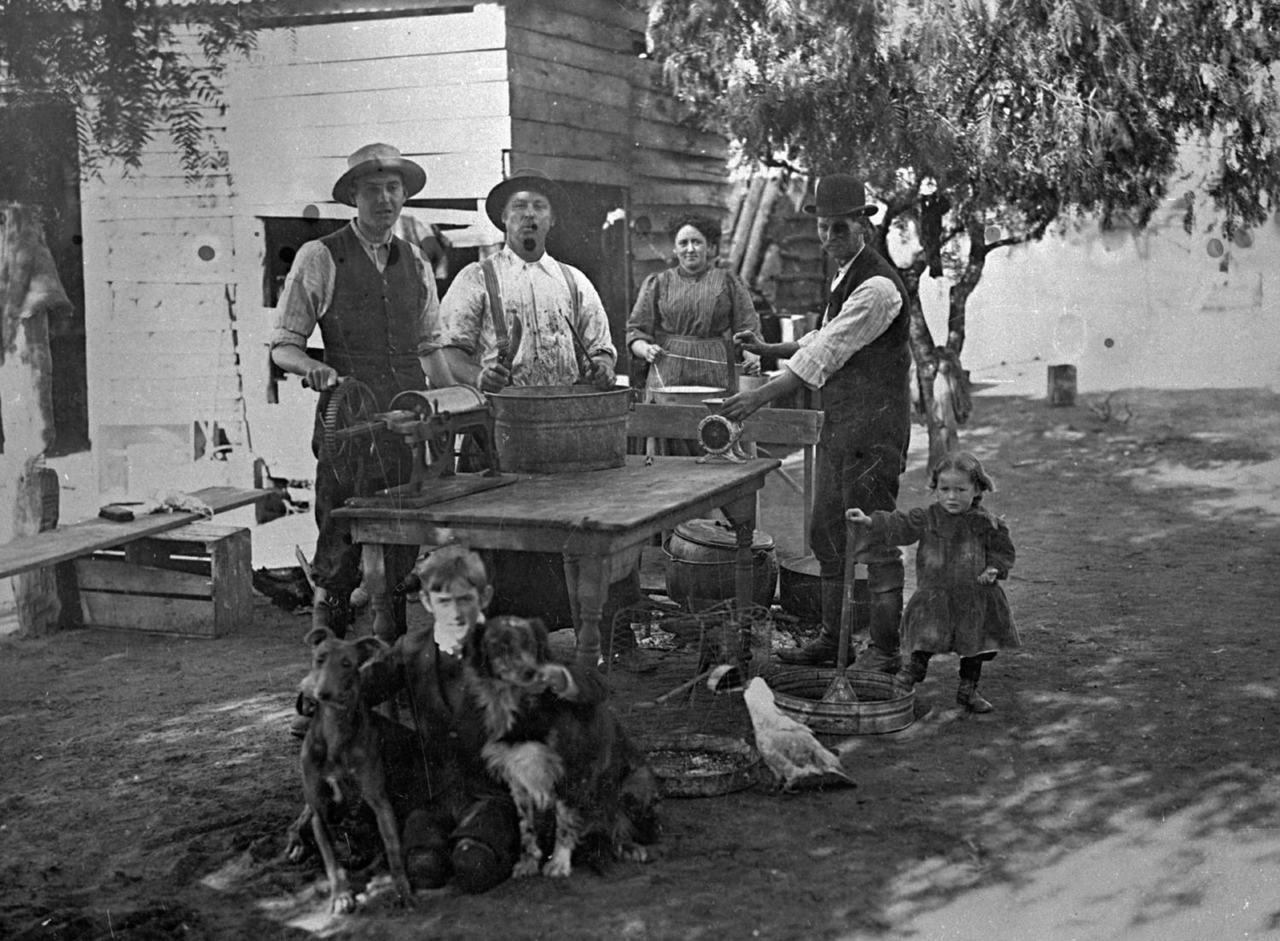Letter from Sebastian Schubach to Mayor Johann Jung and his Friends in Erbach am Rhein (1849)
Abstract
This letter from a German emigrant to Australia to his friends in his old homeland in the Rheingau winegrowing region illustrates both the fascination with the landscape and nature of Australia and the reasons why people left Germany. Many German migrants worked in Australia’s nascent wine industry and had been recruited specifically for this purpose from the Rheingau region. Whether this was how Sebastian Schubach came to Australia is not known. In terms of numbers, emigration from Germany to Australia and New Zealand was far behind that to the USA, not least because the crossing was incomparably longer.
Source
Dear parents, dear brothers and sisters!
Greetings in God to all of you; please send greetings to all good friends, my German brothers whom you will inform of my letter. I wish you all good health, such as I now enjoy with my family.
I live in Australia now, at 150 degrees E and 35 degrees S, but God the Preserver and Ruler of all Nature has allowed me and my family to arrive here happy and healthy.
We set sail from the port of London on the 6th of December 1848, stopping at Gravesend until the 9th, when we took on board fresh meat and bread. […] We German emigrants were 160 souls. […] We did not have a single fine day without storms in the whole of December; the worst was on the night from 25th to the 26th, but there was no danger.
We crossed the Equator on the evening of the 25th, when the sailors set off fireworks.
On the 1st of February the sun was directly above our heads at midday so that a bucket set upon the deck would have cast no shadow; at the Equator the sun stands still only in the spring and autumn.
On the 4th of February ten young people were married by the Captain, all of them Germans. It was a most joyful day on the ship, and we had music and dancing in the evening.
At ten-thirty on the evening of the 27th, the Captain saw the first lighthouse in Australia at the entrance to the Bass Strait, and at one o’clock in the afternoon of the 30th we had our first sight of the Australian mainland – what an indescribable thrill. Around three o’clock we sighted the mountains of Van Diemen’s Land (Tasmania), by evening we had passed through the Bass Strait, we had bright weather that day and could see for a long distance. And so with light winds we sailed into Sydney harbor at one thirty on the afternoon of 4th April, and dropped anchor about ten minutes later in the open water.
We departed Sydney on the 10th of April, with a journey before us of 340 English miles by land. Six English miles equal one German mile. We traveled along the Sydney Road and passed through the towns of Liverpool, Camden, Beria, Goulburn, Yass and Gundegai to Keiamba, as the place where we live is pronounced, but it is spelled Kyamba.
They still need more people in this country, where thousands and thousands of hectares of land, the most splendid sites for vineyards and farmland, remain uncultivated. Germans are especially popular because they are industrious, but we don’t need to work here like we do in Germany. Nobody expects it either, as it is far easier to live here.
There are no dangerous wild beasts here; there is a kind of marten that lives in trees called an opossum, and a sort of deer called a kangaroo.
We are living in a farmhouse at present, until we can build new houses.
All manner of plants grow here, flowers and trees, more beautiful and splendid than those that are grown with great effort in Germany. The grapevines grow far faster here than there.
Brothers and sisters and all good friends, in this country the living is still easy and free, there are no taxes or tithes to pay. And no officials come to demand outstanding rents. Here one can enjoy the freedom that was promised to us in Germany. Every day I thank God that I am here with my family; it is a long journey, to be sure, but it seems like a dream to me now. I cannot imagine that we are 8,000 hours away. It is a young country, where not too many sins have been committed yet, peace and harmony reign among the people.
Dear Brother Heinrich, when you receive my letter, do not neglect to write back straight away.
[…] May God’s mercy and peace be with all of us. Amen.
Sebastian Schubach.
Maria Eva Schubach.
My warmest greetings to all of you.
Source: Letter from Sebastian Schubach to Mayor Johann Jung and his Friends in Erbach am Rhein (1849). Available online at: http://www.germanaustralia.com/d/primary/schubach.htm
